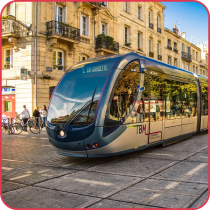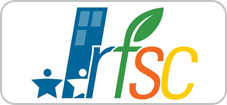suivant > < précédent

Le référentiel des villes et territoires durables (RFSC)

Relance durable - 18.03.2021
How cities are planning a sustainable recovery with the RFSC
Cet article sera bientôt traduit en français.
With the disastrous impact of COVID-19, cities across Europe and the world are faced with the challenges of protecting their citizens and maintaining educational, economic and social life amidst a deadly pandemic. In addition to immediate problems, local governments also need keep the long term in mind and make sure the recovery is a sustainable one.
The Reference Framework for Sustainable Cities (RFSC) was presented on 15 March during the UNECE* Regional Forum on Sustainable Development. Several city representatives also outlined how the tool has been useful their planning efforts in their municipalities.
The RFSC is a web tool that assists and guides cities of all shapes and sizes in the implementation of sustainable urban development policies. It offers a specific framework to help cities integrate the UN Sustainable Development Goals (SDGs) in their daily urban policies, from public transportation to housing and waste management, as well as a set of indicators to support monitoring.
How cities use the RFSC
Today, hundreds of cities around Europe have used this tool to implement local sustainable projects and to advance the 2030 Agenda.
This is the case for the city of Strasbourg which started using the RFSC back in 2018 to define the urban rehabilitation of its Danube Eco-Neighbourhood. For 8 months, the tool helped to analyse and identify not only the SDGs that needed to be prioritised, but also to define concrete priorities, action plans and the indicators to assess the success of the project.
“The first analysis revealed that the project should pay special attention to sustainability, health and well-being, and gender equality” said Grace Haines, Strasbourg’s SDG Project Officer. “It also helped to redesign actions like the creation of rain collection systems or the need to invest in elementary school.”
The City of Bratislava already has local development plans, ranging from construction and interconnection of railway stations, to the modernisation of the water supply and the development of a Positive Energy Districts**. However, the harmonisation and holistic tracking of these actions are not yet embedded into one single strategic development plan, like an SDG strategy. Bratislava will use the RFSC to develop integrated development plans, and easily localise the SDGs.
Using the RFSC in times of COVID
The COVID-19 outbreak has forced cities to rethink how to become more sustainable and adapt their priorities. In a very short period, Bratislava “changed its priorities, by developing changes in mass transportation, development of bus lines and more cycling lines,” said City Strategy Officer Eduard Donauer.
In the same period, Strasbourg developed initiatives such as building cycling path, free transport in the city centre and a territorial food strategy. “The RFSC will help us to assess whether we meet our objectives with those measures,” added Grace Haines.
Local and regional governments are frontrunners in the implementation of the SDGs. Indeed, cities there is no doubt that a more sustainable future starts in cities.
The French government, which co-finances the RFSC tool, believes the time is right to accelerate the implementation of the SDGs.
“In 2022, the French Presidency of the EU Council will be an opportunity to enhance the implementation of the UN 2030 Agenda,” said Thomas Zamansky, Head of Sustainable Operational Development at the French Ministry for the Ecological Transition.
This will certainly be an occasion to assess how the RFSC has greatly contributed to the achievement of the UN Global Goals and to further promote its use by cities and regions.
With the disastrous impact of COVID-19, cities across Europe and the world are faced with the challenges of protecting their citizens and maintaining educational, economic and social life amidst a deadly pandemic. In addition to immediate problems, local governments also need keep the long term in mind and make sure the recovery is a sustainable one.
The Reference Framework for Sustainable Cities (RFSC) was presented on 15 March during the UNECE* Regional Forum on Sustainable Development. Several city representatives also outlined how the tool has been useful their planning efforts in their municipalities.
The RFSC is a web tool that assists and guides cities of all shapes and sizes in the implementation of sustainable urban development policies. It offers a specific framework to help cities integrate the UN Sustainable Development Goals (SDGs) in their daily urban policies, from public transportation to housing and waste management, as well as a set of indicators to support monitoring.
How cities use the RFSC
Today, hundreds of cities around Europe have used this tool to implement local sustainable projects and to advance the 2030 Agenda.
This is the case for the city of Strasbourg which started using the RFSC back in 2018 to define the urban rehabilitation of its Danube Eco-Neighbourhood. For 8 months, the tool helped to analyse and identify not only the SDGs that needed to be prioritised, but also to define concrete priorities, action plans and the indicators to assess the success of the project.
“The first analysis revealed that the project should pay special attention to sustainability, health and well-being, and gender equality” said Grace Haines, Strasbourg’s SDG Project Officer. “It also helped to redesign actions like the creation of rain collection systems or the need to invest in elementary school.”
The City of Bratislava already has local development plans, ranging from construction and interconnection of railway stations, to the modernisation of the water supply and the development of a Positive Energy Districts**. However, the harmonisation and holistic tracking of these actions are not yet embedded into one single strategic development plan, like an SDG strategy. Bratislava will use the RFSC to develop integrated development plans, and easily localise the SDGs.
Using the RFSC in times of COVID
The COVID-19 outbreak has forced cities to rethink how to become more sustainable and adapt their priorities. In a very short period, Bratislava “changed its priorities, by developing changes in mass transportation, development of bus lines and more cycling lines,” said City Strategy Officer Eduard Donauer.
In the same period, Strasbourg developed initiatives such as building cycling path, free transport in the city centre and a territorial food strategy. “The RFSC will help us to assess whether we meet our objectives with those measures,” added Grace Haines.
Local and regional governments are frontrunners in the implementation of the SDGs. Indeed, cities there is no doubt that a more sustainable future starts in cities.
The French government, which co-finances the RFSC tool, believes the time is right to accelerate the implementation of the SDGs.
“In 2022, the French Presidency of the EU Council will be an opportunity to enhance the implementation of the UN 2030 Agenda,” said Thomas Zamansky, Head of Sustainable Operational Development at the French Ministry for the Ecological Transition.
This will certainly be an occasion to assess how the RFSC has greatly contributed to the achievement of the UN Global Goals and to further promote its use by cities and regions.
 shqiptar
shqiptar български
български hrvatski
hrvatski čeština
čeština dansk
dansk Nederlands
Nederlands English
English eesti keel
eesti keel suomi
suomi Français
Français საქართველოს
საქართველოს Deutsch
Deutsch ελληνικά
ελληνικά עברית
עברית íslenska
íslenska italiano
italiano Gaeilge
Gaeilge latviešu valoda
latviešu valoda lietuvių kalba
lietuvių kalba magyar
magyar македонски
македонски Malti
Malti norske
norske polski
polski português
português română
română Serbian
Serbian slovenčina
slovenčina slovenščina
slovenščina español
español Türkçe
Türkçe svenska
svenska український
український


















































